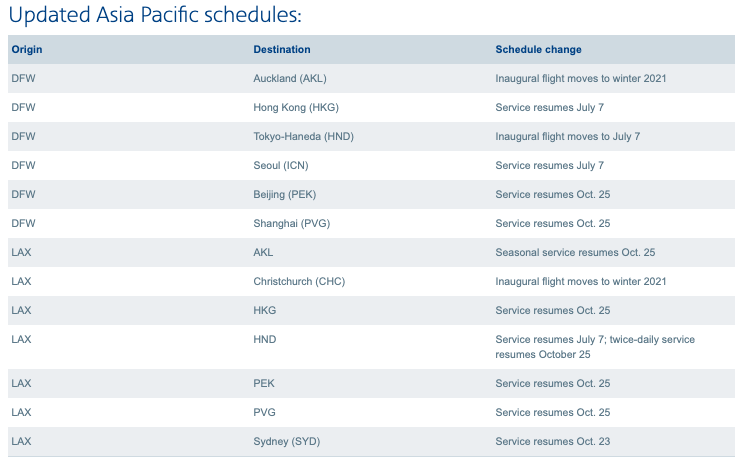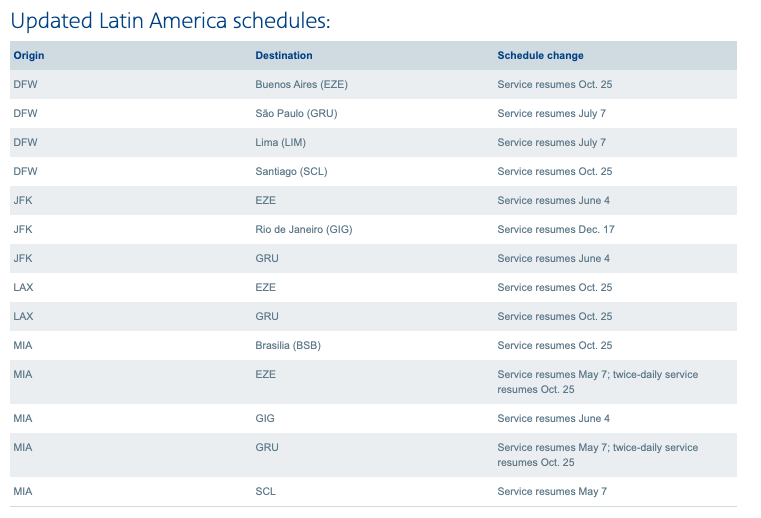American Airlines Group Inc. (NASDAQ: AAL) will make further capacity cuts this summer to address record low customer demand. The airline will:
- Suspend more than 60% of international capacity for the peak summer travel season versus the same period last year.
- Delay the launch of new routes, including service from Philadelphia (PHL) to Casablanca (CMN), Chicago (ORD) to Krakow (KRK) and Seattle (SEA) to Bangalore (BLR) to 2021.
- Delay the launch of new winter seasonal service from Los Angeles (LAX) to Christchurch (CHC) and from Dallas-Fort Worth (DFW) to Auckland (AKL) to winter 2021.
- Suspend 25 total summer seasonal flights until summer 2021.
Summer and winter capacity will be reduced
American will suspend more than 60% of its total international capacity this summer compared to the same peak period in 2019, which includes an 80% reduction in Pacific capacity, 65% reduction in Atlantic capacity and 48% reduction in Latin America capacity. These changes are due to significantly decreased customer demand as well as government travel restrictions — both related to the coronavirus (COVID-19) pandemic. The reduced summer schedule, as well as the previously announced domestic schedule reductions for May, will be reflected on aa.com starting Sunday, April 5.
The airline previously announced that new service to AKL from DFW, CHC from LAX and BLR from SEA would all begin in October 2020, but American will now begin operating those routes in winter 2021. The resumption of existing service to AKL from LAX — which was originally slated to resume in early October 2020 — will now resume at the end of October 2020.
American will further extend the start date of new routes. Service to London (LHR) from Boston (BOS) will now launch in October 2020 and service to Tel Aviv (TLV) from DFW will begin in September 2021. Service to CMN from PHL and KRK from ORD will not launch this year, as well as 23 existing summer seasonal routes.
A full list of changes to the international summer schedule is below. There are no further changes at this time.





